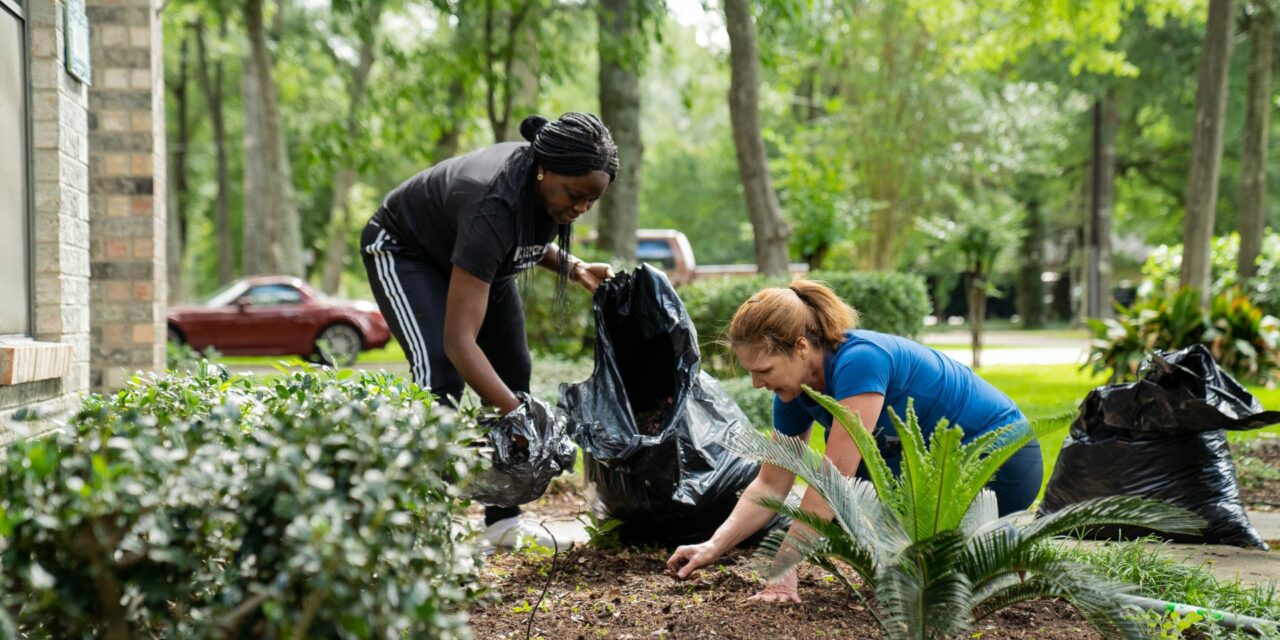If your church disappeared tomorrow, would anyone in your community know, care, or miss you?
Would someone say, “Where did that church go? They were such kind people, always serving, giving, and meeting needs. When there was a flood, they were the ones that came over and mudded out my house. When I was hungry, they gave me food. They served at my child’s school and helped with after-school programs. They even walked alongside me when my loved one died. That church was there for me when I needed them the most!”
The Great Commandment
The Great Commandment is an exchange recorded in three of the four gospels. Consider Matthew 22:34-40:
Matt. 22:34-40 – “But when the Pharisees heard that he had silenced the Sadducees, they gathered together. And one of them, a lawyer, asked him a question to test him. “Teacher, which is the great commandment in the law?” And he said to him, “You shall love the Lord your God with all your heart and with all your soul and with all your mind. This is the great and first commandment. And a second is like it: You shall love your neighbor as yourself. On these two commandments depend all the Law and the Prophets.”
Here, Jesus answers a question posed by a religious leader who inquires, “Which law is the greatest?” Remember, this lawyer was not just referring to the 10 Commandments. The Talmud, a collection of writings and commentary on the Torah, which is Old Testament Law, includes the first five books of the Bible. Recorded in the Torah are 613 laws given to Moses by God. 248 of these are positive commands—“do this or do that”—and 365 are negative commands—“don’t do this or don’t do that.” So you can understand why the Bible said the lawyer’s question was a “test” intended to trap Jesus. “There are 613 laws, Jesus, but which is the most important?” Well, Jesus answers him, “Love God and love your neighbor. All other commandments flow from these two.” According to Mark’s Gospel, Jesus says: “There is no other commandment greater than these” (Mark 12:31b)
Love God and love your neighbor. Loving your community is the Great Commandment. What does loving your neighbor and your community look like? Let’s begin by surveying what it does not look like.
What does Loving Your Community not look like?
Loving your community does not mean sacrificing the truth you believe.
Your community is filled with people that don’t believe the same things you believe. Some people don’t believe in God, and others worship false gods. Some people in your community hold different political views or views on gender and sexuality. But hear this; you are called to love everyone in your community. This is the command of scripture. Don’t think for a moment that you should water down, in any way, the truth you believe about God, his Word, and upright Christian living. The gospel of Jesus fuels your love for your community.
Loving people who disagree with you or live differently than you doesn’t mean compromising your convictions. On the contrary, you must hold this tension, even when you face backlash, even when you are misunderstood, and even when people don’t want to receive your love because you are “intolerant.” Yet, despite all of this, love.
Loving your community doesn’t mean meeting every need that is presented to you.
Listen, there are a lot of needs in your community, and it’s impossible for you to meet them all. First, you don’t have all the resources to meet every demand in your community. Because of this, you must be strategic about what you say “yes” to and what you say “no” to. Stewardship demands intentionality in your use of resources and volunteers.
Secondly, you’re not meant to do everything. In many cases, other churches in your area already meet specific needs. Many parachurch ministries are excellently meeting needs you simply cannot. Get to know them and send people to them. If a need is already being met somewhere—even by another church or ministry—great! This is worth celebrating! We’re all on the same team. You don’t have to reinvent the wheel.
Loving your community doesn’t mean just doing good works.
The most unloving thing you could do for your community is to meet physical needs through good works and “ministries” and not share the good news that meets man’s deepest spiritual need—the forgiveness of sin and being made right with God! Again, look at the life of Jesus in Mark 2, where we see Jesus’ healing of a paralyzed man. Jesus tells the man, “Son, your sins are forgiven. Take up your bed, and go home.” Spiritual healing preceded physical healing. This is how Jesus worked, and we must model his example.
Loving your community doesn’t mean just talking.
Even as you take the love of Jesus and share it verbally, you must simultaneously show the love of Christ tangibly. This is where the power is—in sharing audibly and showing Jesus’ love tangibly. Remember what James said:
James 2:14-18 – “What good is it, my brothers, if someone says he has faith but does not have works? Can that faith save him? If a brother or sister is poorly clothed and lacking in daily food, and one of you says to them, “Go in peace, be warmed and filled,” without giving them the things needed for the body, what good is that? So also faith by itself, if it does not have works, is dead. But someone will say, “You have faith and I have works.” Show me your faith apart from your works, and I will show you my faith by my works.”
This is what you want. A faith that works. Our heads can grow big, but our hearts will grow cold if our hands aren’t working for the Kingdom. Loving your community engages your hands and feet to be the hands and feet of Jesus. Love is expressed. You must say it, and you must live it.
How Do We Love?
Love is expressed in three primary ways: empathetically, actively, and sacrificially.
1. Love is expressed in empathy
Empathy is putting yourself in another person’s shoes. Do you remember the parable of the Good Samaritan? This parable is recorded in Luke 10:29-37 and serves as context for the Great Commandment. The Bible says a Samaritan stumbled upon a man who fell among robbers. These robbers stripped the man, beat him, and departed. Just before the Samaritan passed by, a priest and a Levite also passed by, seeing the man in need, but kept walking. Unlike the priest and the Levite, the Samaritan had compassion. In other words, he “felt” something that the priest and the Levite did not.
If you want to love your community well, I encourage you to pray: “God, give me a sensitive heart to the needs around me. Don’t let me pass by those who need help in my community.” When you see a need, ask the Lord, “What am I supposed to do?” Put yourself or a family member in that person’s place and act accordingly.
2. Love is expressed in action
Luke 10:34 says this about the Good Samaritan: “ He went to him and bound up his wounds, pouring on oil and wine.” He went to him. There was a connection between what his heart felt and where his feet went. If you wonder what part you play in loving your community, think about this: Where do you feel the most? What pulls on your heartstrings? Is it with kids? Is it with individuals with disabilities? Do you enjoy teaching or coaching? Do you have a heart for senior adults or students? Is your heart sensitive to the needs of individuals suffering from mental health issues or substance abuse addictions? Do you long to see the needs of outsiders or immigrants met? God has wired you and given you life experiences, relationships, talents, and skills to advance his Kingdom. Consider where you can best serve to help meet needs like these.
3. Love is expressed in sacrifice
Loving your community well is going to cost you. You will likely need to sacrifice comfort, convenience, money, and time, among other things. But, as you sacrifice these things, you will see God do incredible things to advance the Kingdom. Whatever the cost, advancing the Kingdom through making disciples and loving your community is worth it.







